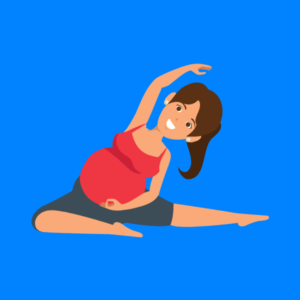PMS (premenstrual syndrome) is the name for the symptoms women can experience in the second half of their monthly cycle. Most women have PMS at some point but symptoms should usually disappear within 48 hours after menstruation starts when hormone levels start rising again.
PMS is a combination of physical and psychological symptoms that many women get after ovulation and before the start of their menstrual period. It is thought that it happens in the days after ovulation because estrogen and progesterone levels begin falling dramatically if you are not pregnant.
Some women get their periods without any signs of PMS or only very mild symptoms. For others, PMS symptoms may be so severe that it makes it hard to do everyday activities like go to work or school.
What are the common symptoms?
Each woman’s symptoms are different, can be mild or severe and can vary from month to month.
The most common symptoms of PMS include:
- mood swings
- feeling upset, anxious or irritable
- tiredness or trouble sleeping
- bloating or tummy pain
- breast tenderness
- Fluid retention
- headaches
- spotty skin or greasy hair
- changes in appetite and sex drive
Steps you can take to relieve symptoms
- Do regular exercise
- eat a healthy, balanced diet
- get plenty of sleep – 7 to 8 hours is recommended
- try reducing your stress by doing yoga or meditation
- take painkillers such as ibuprofen or paracetamol to ease the pain
- keep a diary of your symptoms for at least 2 to 3 menstrual cycles – you can take this to a GP appointment
What causes PMS?
It is not exactly known why PMS happens but changes in hormone levels during the second half of the monthly cycle may be involved in some way. PMS can be brought on, or can get worse if you:
- are under a lot of stress
- smoke and drink alcohol
- Don’t engage in any form of exercise
- don’t sleep enough
- Drink too much alcohol or eat too much salt, red meat, or sugar
- Are depressed
- have other health problems
Treating PMS
- Exercise about 30 minutes a day.
- Evening primrose oil can be used to relive breast tenderness
- Eat healthy foods like whole grains, fruits, and vegetables.
- Limit your intake of salt, sugar and alcohol.
- Don’t smoke.
- Get plenty of sleep.
- Work to lower stress.
- Track your moods and symptoms in a journal.
- Do a lifestyle audit. and cut out nay stress related activities or work on any psychological factors affecting you.
- Try over-the-counter pain relievers like ibuprofen, or acetaminophen.
Some women find that herbal remedies help. Also, a combination of vitamins and minerials like Vitamin B complex, Vitamin D and E may help.
Others find that herbal remedies help. If you take any vitamins or supplements, check with your doctor first to make sure it’s safe for you.
Your doctor may prescribe some medication if your symptoms are not improving or If you’ve tried different things. Your doctor may prescribe:
- Hormonal birth control may help with some physical symptoms but may make other symptoms worse, so its best to find which one will have the least side effects.
- Antidepressants can help relieve emotional symptoms of PMS for some women.
- Diuretics (“water pills”) may reduce symptoms of bloating and breast tenderness.
As always, all medicines have risks. It’s better to approach this through a lifestyle change of diet and exercise to see if symptoms can be relieved first before taking medication. Talk to your doctor or nurse about the benefits and risks.



